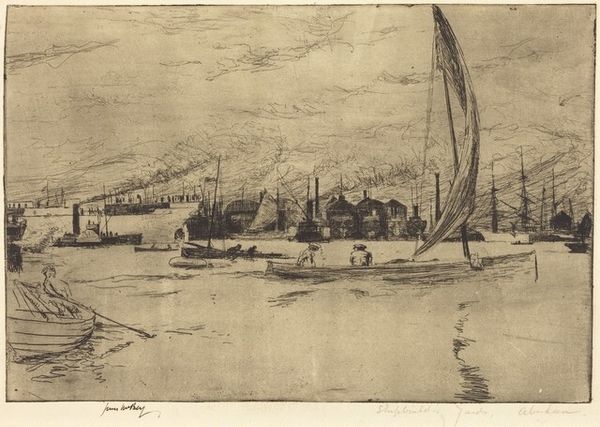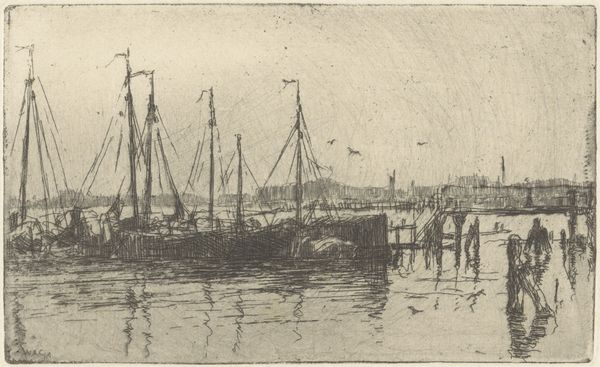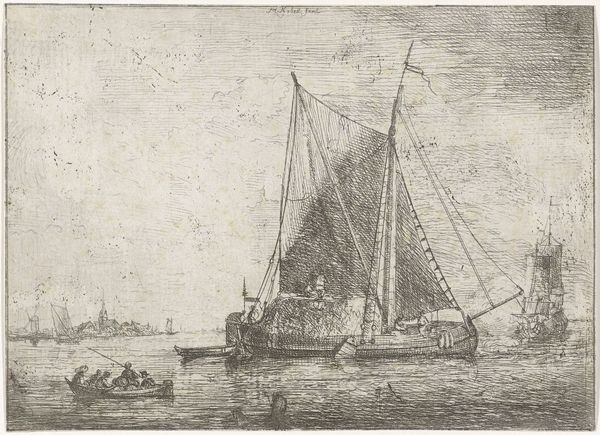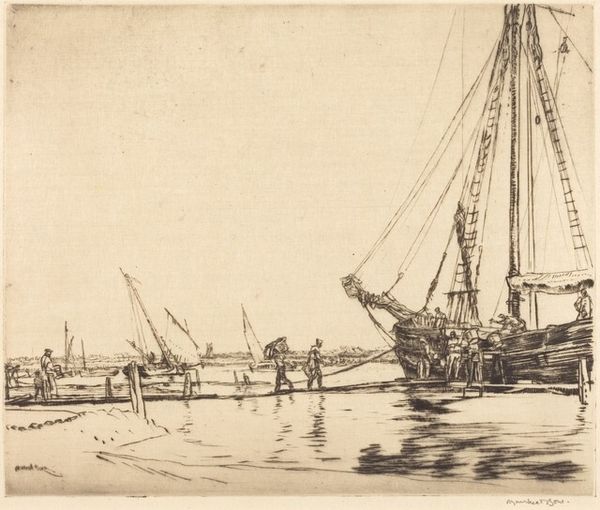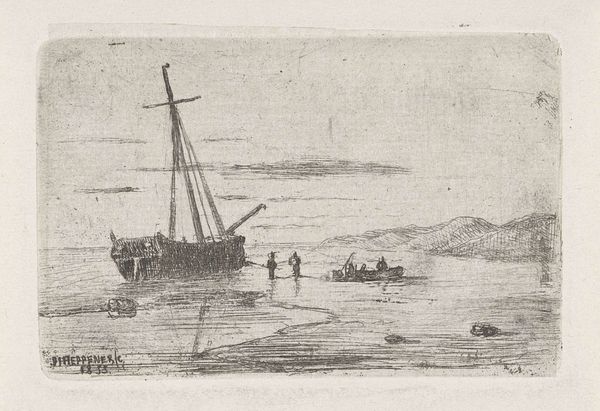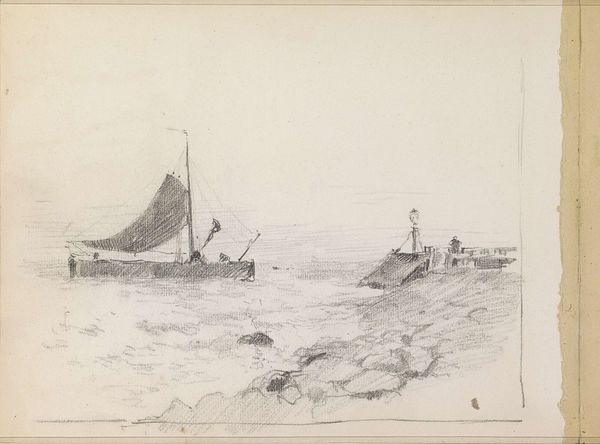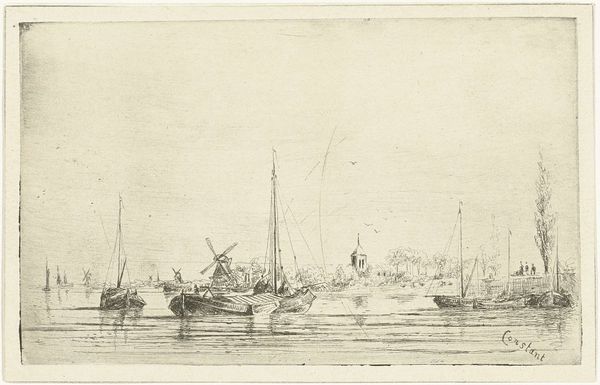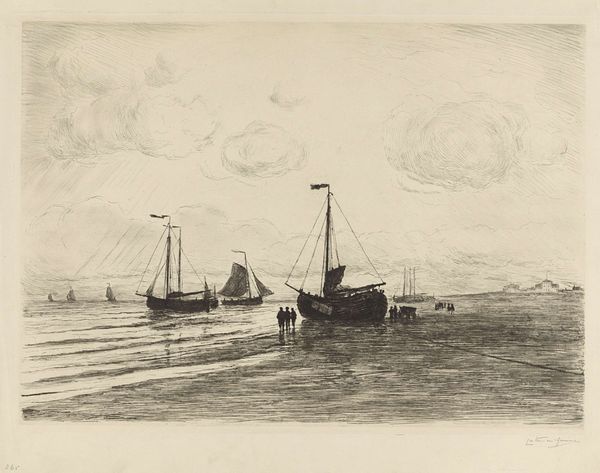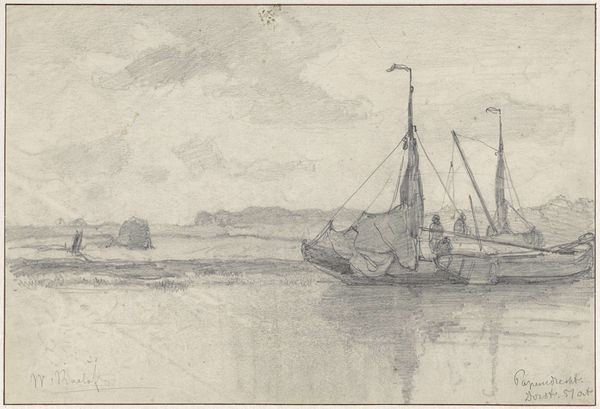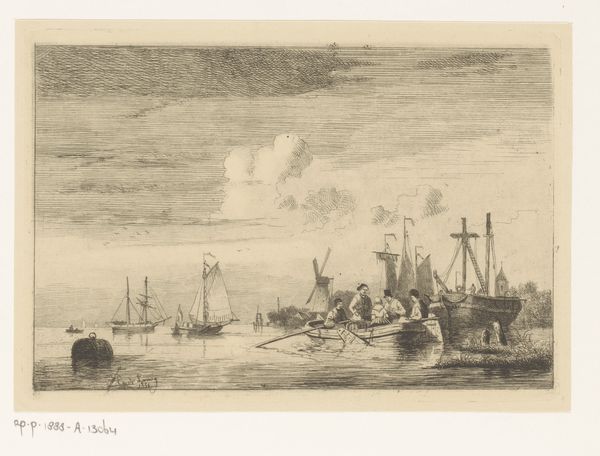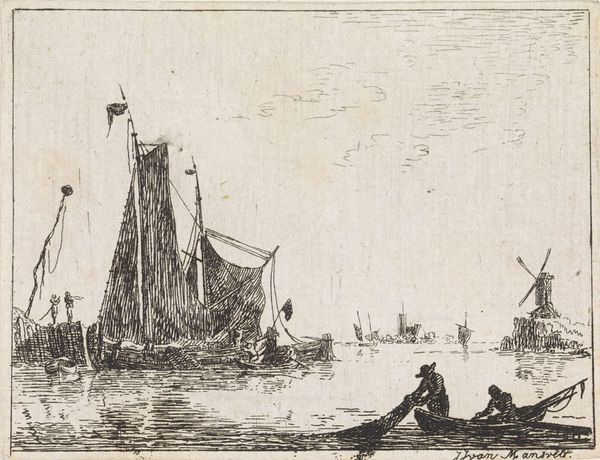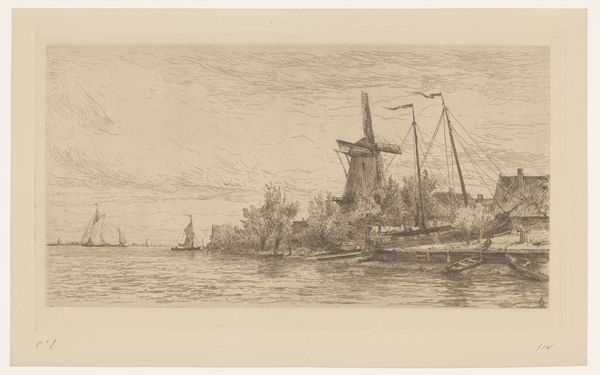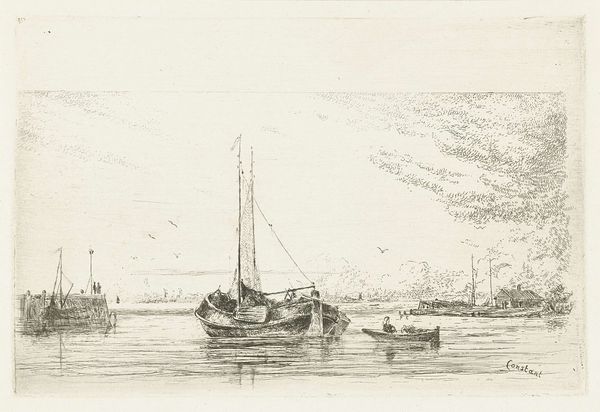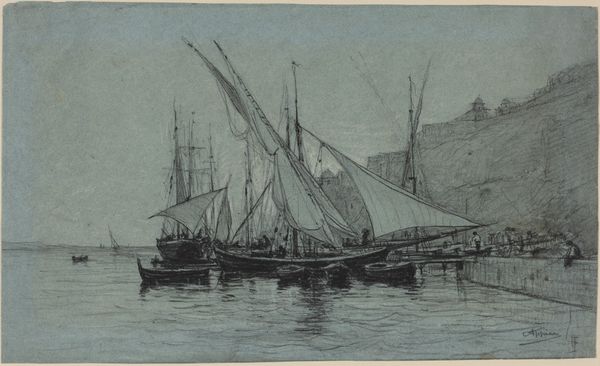
print, etching
#
dutch-golden-age
# print
#
etching
#
landscape
#
etching
#
realism
Dimensions: width 115 mm, height 115 mm
Copyright: Rijks Museum: Open Domain
Jacobus van Gorkom Jr. made this print, River View with a Mill, in 1860. It's an etching, a printmaking process in which acid is used to cut into a metal plate, allowing for an image to be created. Here, the fineness of the etched lines is really key. Look how they capture the reflections on the water, and the overcast sky. Van Gorkom would have used a sharp needle to draw through a waxy ground, exposing the metal. Then, the plate would have been immersed in acid, biting away the lines. The longer the plate is left in the acid, the deeper and darker the lines will be. The print could then be inked and run through a press, transferring the image to paper. This was, in effect, a reproductive technology, allowing for the relatively inexpensive dissemination of images – although of course, there was skill involved too. Van Gorkom was clearly expert at manipulating the etching process to achieve a desired atmospheric effect. This print makes us think about the labor of both the artist and the landscape he depicted. It is not only about the view, but also about the means by which it was captured and shared.
Comments
No comments
Be the first to comment and join the conversation on the ultimate creative platform.
